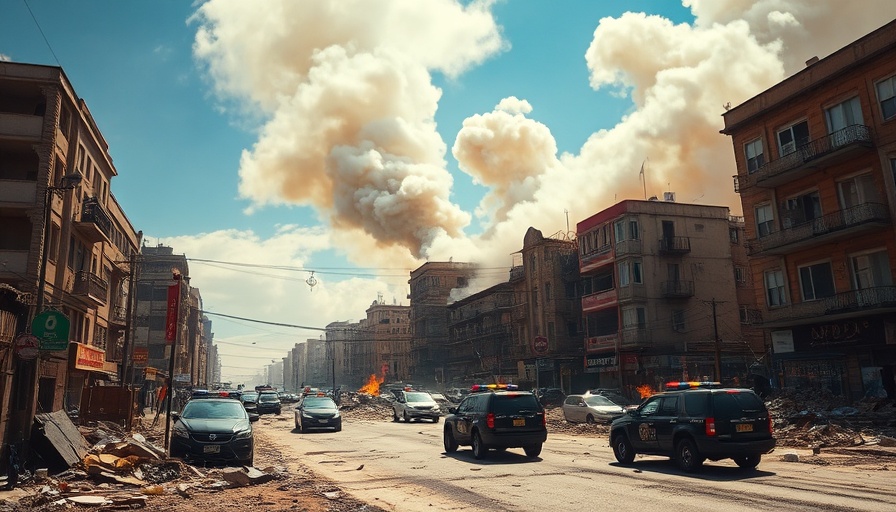
Reflecting on a Dark Day in American History
As the 30th anniversary of the Oklahoma City bombing approaches, the memories of that fateful day continue to resonate profoundly within the community and the law enforcement ranks. The April 19, 1995, bombing, which tragically claimed 168 lives, including 19 children, stands as one of the most devastating acts of domestic terrorism in U.S. history. The impact of that day shaped not only the victims' families but also the first responders who rushed to the scene, forever altering their careers and personal lives.
Documentaries Bring Stories to Life
The release of Netflix’s documentary, Oklahoma City Bombing: American Terror, sheds light on the heroism exhibited by law enforcement officials. Trooper Charlie Hanger’s gripping narrative of apprehending Timothy McVeigh during a routine traffic stop illustrates how one moment defined a career and ensured justice. In this documentary, veterans of the Oklahoma City Police Bomb Squad recount harrowing experiences that highlight the human side of law enforcement amidst chaos.
The Legacy of Response to Terrorism
The Oklahoma bombing was a pivotal moment that reshaped emergency response strategies across the nation. The National September 11 Memorial & Museum's panel discussion featuring first responders from Oklahoma and New York, including those who faced the 9/11 attacks, underscores the lessons learned about urban search and rescue. Retired professionals like FDNY Battalion Chief Stephen Spall and NYPD ESU Detective Kenneth Winkler will reflect on the essential evolution of practices and policies instituted to manage large-scale emergencies following these nail-biting experiences.
Drastic Changes in Law Enforcement Practices
This 30-year mark isn't just a moment to mourn; it’s a time to assess how far law enforcement has traveled in technology and training since that day. The traumatic impressions left by the Oklahoma City bombing spurred changes in policies and leadership strategies within police departments. The lessons learned have generated a new generation of police training programs focused on managing high-stress scenarios, enhancing officer wellness, and strategizing for crisis situations more effectively.
Building Community Trust Through Transparency
The Oklahoma City tragedy has also initiated pivotal dialogues on police-community relations. Law enforcement has made strides in building trust through transparency and accountability. As departments reflect on their historical response to the bombing, there’s an ongoing discussion on the importance of transparency in police practices, with an eye towards reforming public safety policies to better serve communities while ensuring accountability. The conversations surrounding police reform and community relations are as vital now as they were in 1995.
A New Era for Public Safety
The upcoming commemorations serve as powerful reminders of the critical role first responders play not only during crises but also in their ongoing approach to community engagement and public safety. As we reflect on Oklahoma City, there is a call to recognize the sacrifices made and lessons learned—shaping not just the present but also the future of policing in America.
Call to Action: Reflect and Advocate for Change
As we look back on the Oklahoma City bombing, let us honor the memory of those lost by continuing to advocate for improvements and reforms within law enforcement. By raising awareness about police-community relations and the importance of officer mental health, we can drive the conversation forward. Let’s engage in meaningful discussions that honor both the sacrifices of the first responders and the communities they serve.
 Add Row
Add Row  Add
Add 

 Add Element
Add Element 




Write A Comment